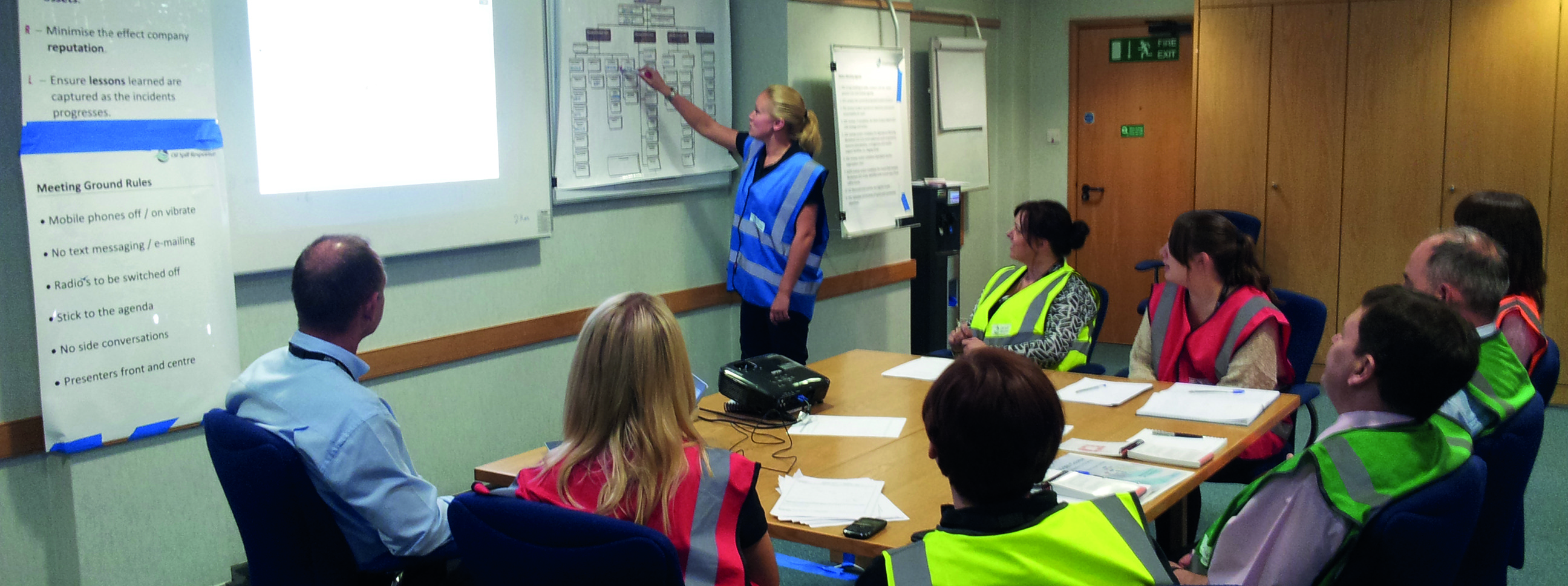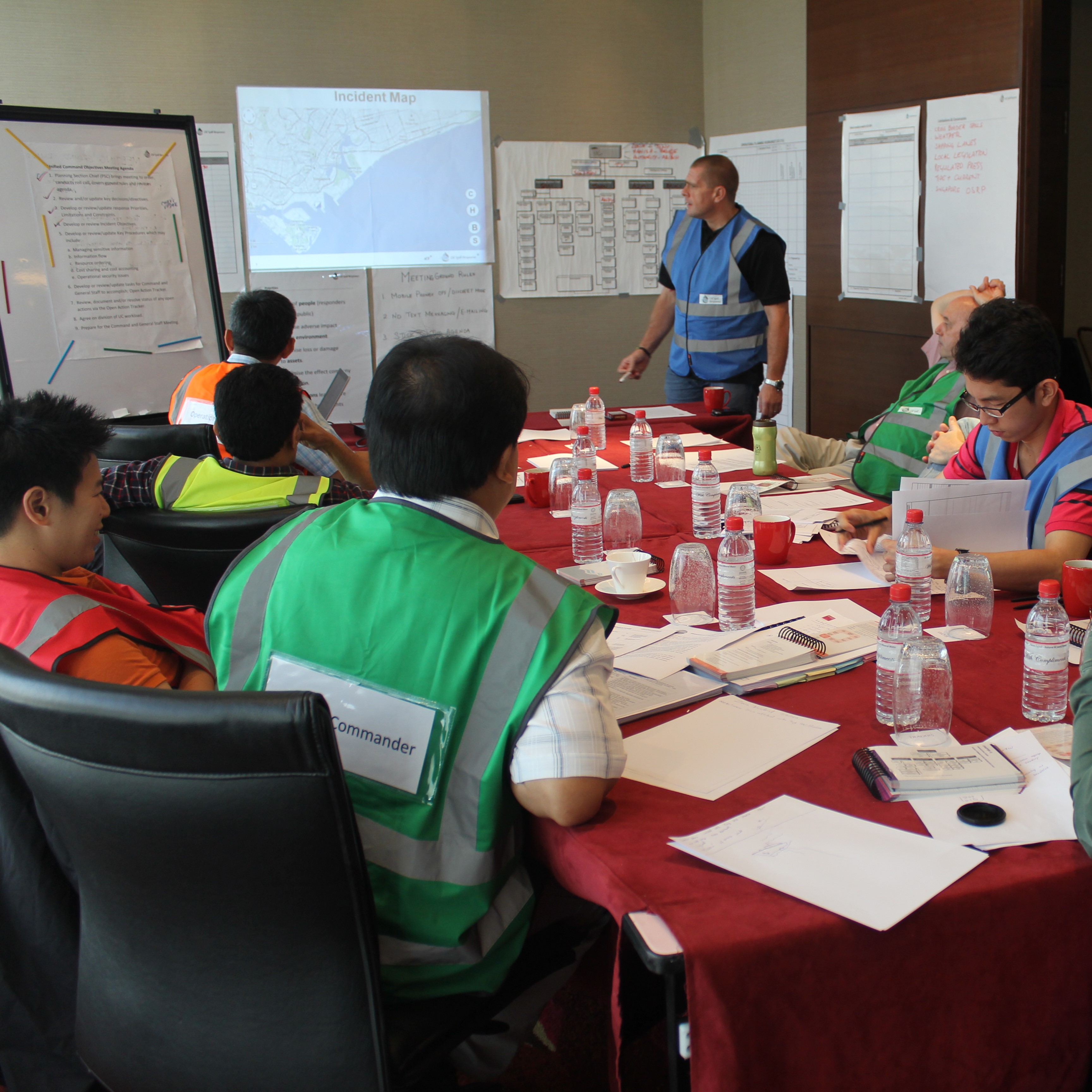This IMS 300 course is customised for your organisation to experience as an incident management team
Experiencing this course with your colleagues is the best way to understand each other's roles within an incident, practice with those who will be working alongside you and build the everlasting relationships that will lead you to effective and efficient incident management.
Most incidents are small in nature and may not need a full IMS implemented to manage the incident itself, but in the event of an escalating or large incident, being familiar with a functioning IMS will support the in-field operations expediently. This course, customised to your company and operations, will develop your teams' preparedness to deal with a large-scale incident and tangible skills to manage an incident effectively and efficiently.
Experience has shown that using a structured Incident Management System (IMS) is a critical success factor in establishing command and control in response to a major oil spill. IMS includes a modular organisation with pre-identified roles, responsibilities, reporting relationships and authorities necessary to manage an incident. IMS also includes a planning process to ensure a direct link between the incident management objectives and in-field response actions.






